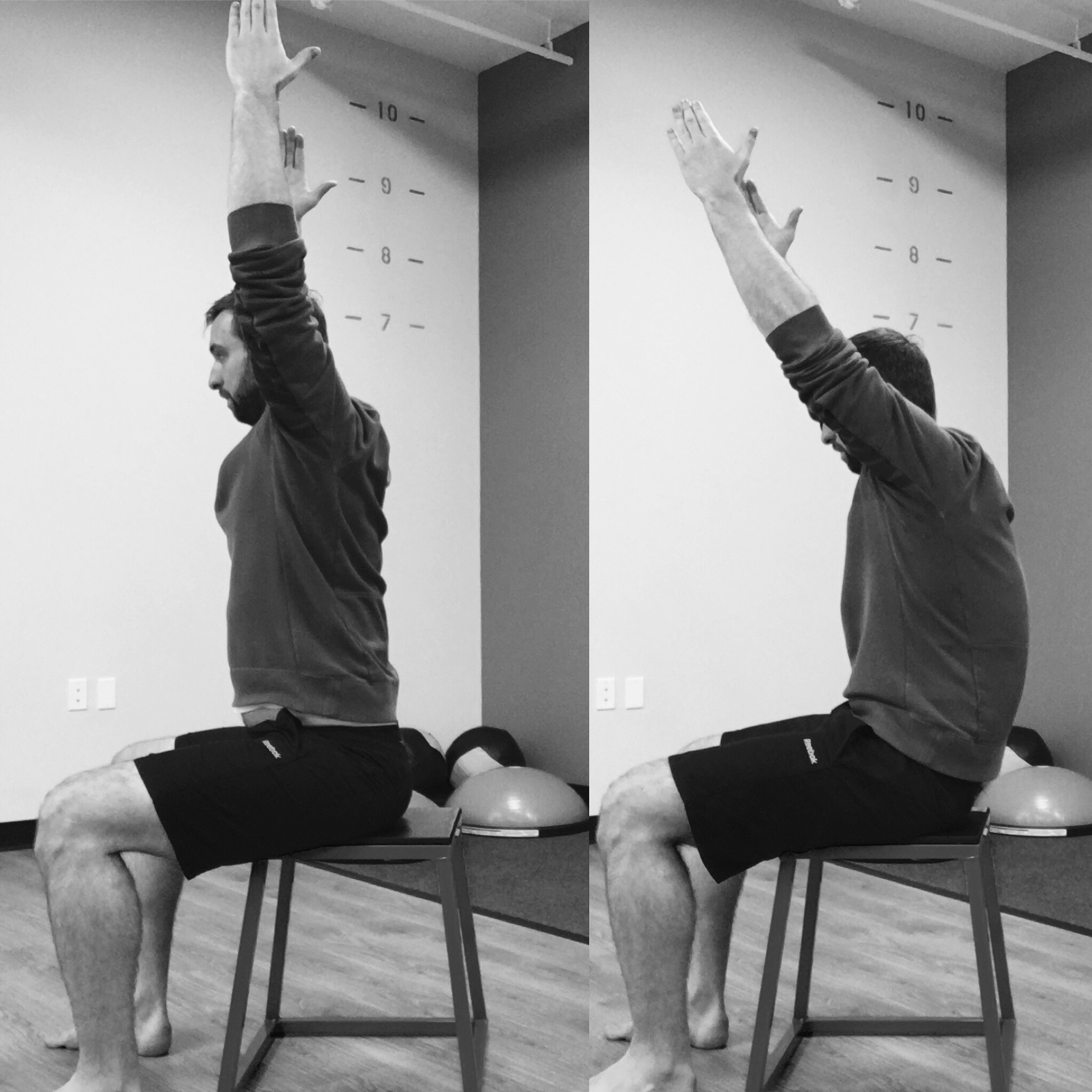Shoulder Joint vs. Shoulder Complex - Rehabbing the Shoulder
When is comes to rehabilitation of the shoulder it’s important to view the shoulder ‘joint’ as more of a shoulder complex that involves the shoulder joint, the thoracic spine, and the shoulder blade. Let's discuss each in brief and see how we can use this perpective to improve shoulder function.
1. The Shoulder Joint Itself
The Shoulder Joint itself includes the head of the humerus and where it articulates with the glenoid fossa of the shoulder blade. It is held in place by the muscles of the the rotator cuff.
Traditional rehabilitation of the shoulder usually entails strengthening the isolated muscles of the rotator cuff while leaving out of the other aspects of the shoulder complex (which are vitally important for long term recovery of shoulder pain).
2. Thoracic Spine
The shoulder is inherently connected to your thoracic spine (mid back). To see how limited thoracic motion can impact your shoulder let's take a look at the pictured on the right. On the left we have full thoracic extension and you can see how the shoulders easily get into full shoulder flexion. The picture on the right is with the thoracic spine locked into flexion (typical of someone who works at a computer all day).
Now imagine going doing a lot of overhead movements at work or in the gym. If you're unable to achieve full shoulder range of motion due to a lack of mid back mobility, your shoulder muscles, ligaments, tendons will take most of the load and eventually lead to pain and injury.
3. Scapula/Shoulder Blade
The third aspect of the shoulder complex is the shoulder blade itself. With muscular connections that span the entire body, gaining proper movement and control of the shoulder blade is a vital piece to rehabbing the shoulder.
Scapular Movement
Sometimes our scapula can get stuck to our rib cage and we need to work to loosen it up (and gain control). Scap Circles is one of our favorite to improve better motion between the scapula and our ribcage.
Scapular Activation
A beginner shoulder activation exercise. Shoulder depressions require a client to have the ability to activate smaller (and yet very important) scapular stabilizer muscles.
Evolve Performance Healthcare specializes in combining full body chiropractic care with movement and strength programs to help individuals recover from shoulder pain. If you have questions, please don't hesitate to reach out.
Email or Call
(503) 954-2495
hello@performancehealthcarepdx.com


